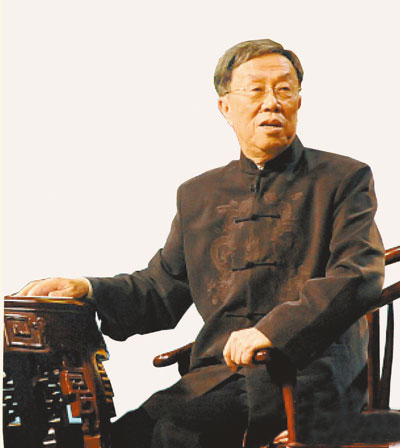 FIVE writers won the prestigious Mao Dun Literature Prize this year, according to the panel for the 9th Mao Dun Literature Prize on Sunday afternoon. The winners, Ge Fei (“Jiangnan Trilogy”), Wang Meng (“Unique Landscape”), Li Peifu (“A Record of Life”), Jin Yucheng (“Blooming Flower”) and Su Tong (“Siskin”) will each receive an award of 500,000 yuan (US$78,000). Among the five winning works, Jin’s “Blooming Flower,” written in the Shanghai dialect, was considered a dark horse in literature circles since its publication in 2012, but has taken home many top literature awards and proven popular with readers in their 20s and 30s. A novel about Shanghai life, its use of the local language makes it feel more authentic. While Mandarin is the standard choice for Chinese literature today, Jin’s use of the Shanghai dialect is seen as a bold choice. “Chinese literature is getting monotonous both in language and form. I want to be special, and have my own language,” Jin told the Global Times in an interview before the announcement. “Unique Landscape,” a novel that Wang first began writing during his time in the Xinjiang Uyghur Autonomous Region’s rural areas during the 1960s and 1970s and finished in 2013 at age 80, won Wang his first Mao Dun prize. The novel depicts the real lives of Han and Uyghur people during the tumultuous 1960s and 1970s, as well as explores the region’s ethnic folklore. In his “A Record of Life,” Li, a 61-year-old writer from Henan Province, examines the drastic changes that have occurred in China’s rural and urban areas over the past 50 years. Written from the perspective of a rural man moving to a big city, the introspective novel reveals a complicated society and struggles of people in urban China. The other two winners, Ge and Su, are both avant-garde writers. Ge’s “Jiangnan Trilogy” is said by critics to depict “the changing spirit of Chinese society over the past 100 years.” Nobel Literature laureate Mo Yan said the novel is like Cao Xueqin’s “A Dream of Red Mansions.” Su’s “Siskin,” which describes the rape of a teenager in the 1980s, tackles the concepts of sin, punishment, desperation and hope. A total of 252 works published between 2011 and 2014 competed for this year’s prize, including works by well-known writers such as Jia Pingwa and Wang Anyi. Writers nominated to the shortlist include Fan Wen, Yan Zhen, Lin Bai and Xu Zechen. The 18-day judging process was monitored by a team to make sure it was fair and free of corruption, according to the China Writers Association (CWA). Some Chinese literature and art prizes have recently come under fire with authors and members of the public casting questioning the quality of the winning writing. Poet Zhou Xiaotian, one of the winners of last year’s Lu Xun Literature Prize, was disappointed to see Internet users mock his colloquial style of writing. Noted Chinese writer Fang Fang has also accused some winners of exploiting personal connections to secure awards. First issued in 1982, the Mao Dun Literature Prize has been awarded every four years. Previous winners include works by Mo Yan, as well as that of famous writers including Lu Yao, Jia Pingwa, Alai and Liu Zhenyun. (SD-Agencies) | 
